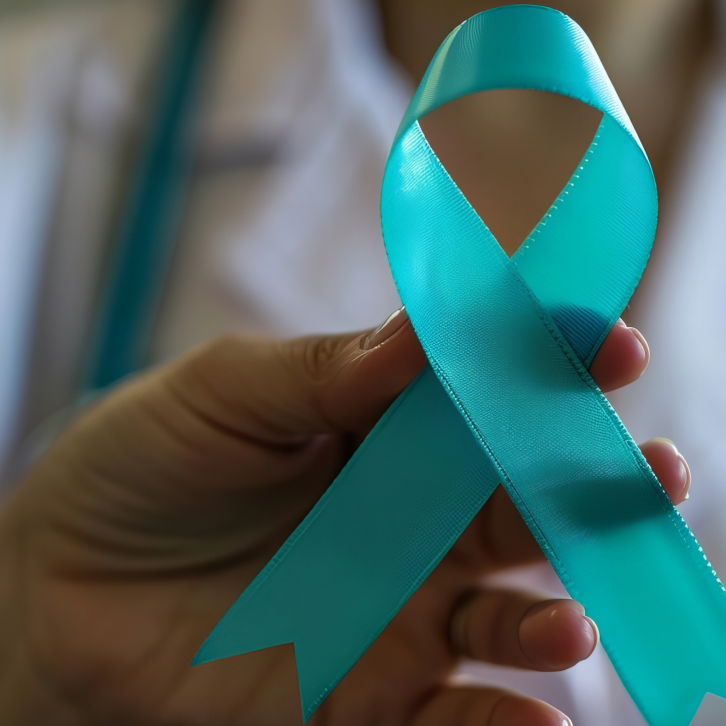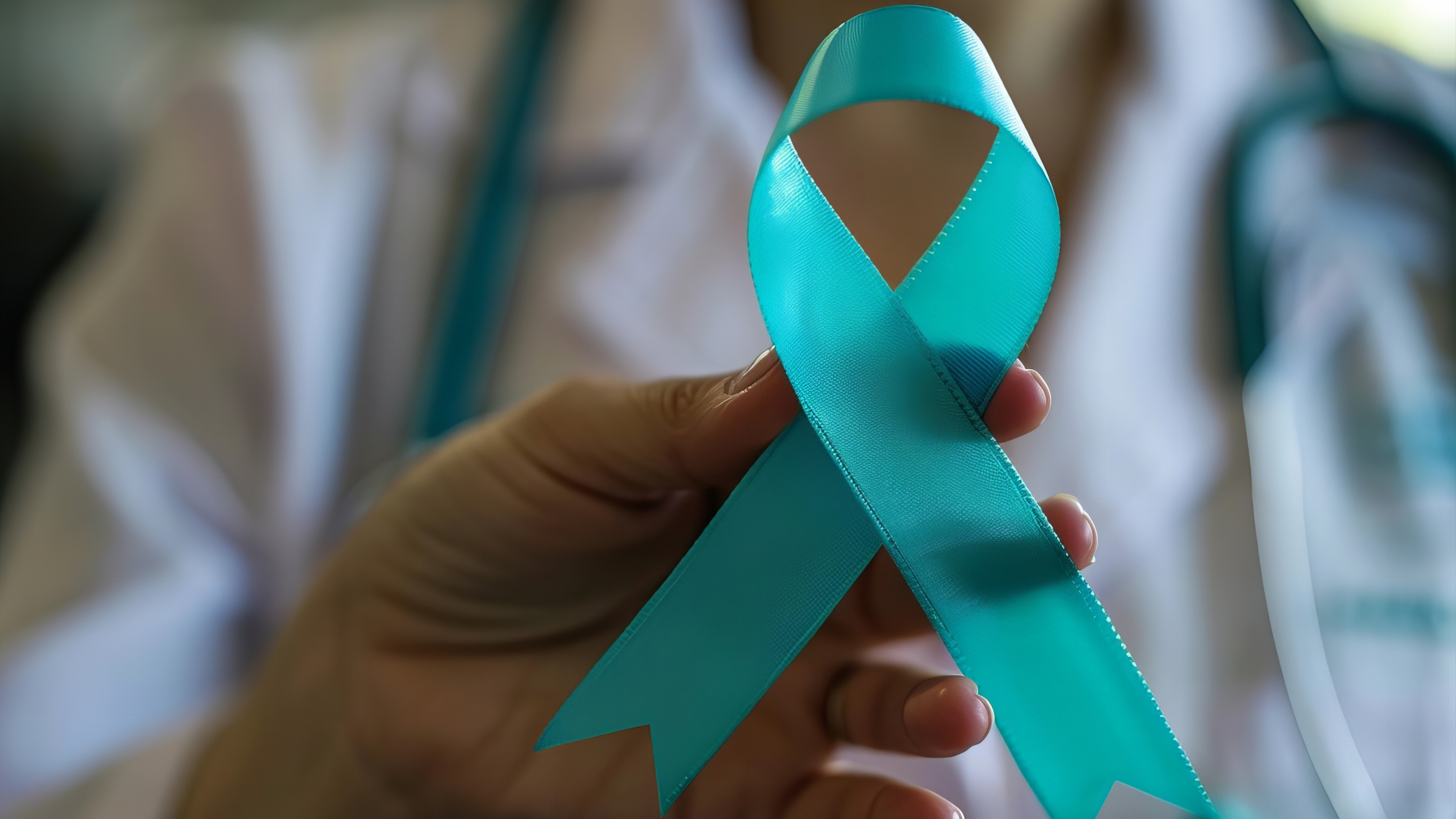Ovarian Cancer
Your Personalized Path in Ovarian Cancer Care
At The Center for Advanced Medicine, under the direction of Dr. Jonathan Stegall, we are committed to a comprehensive and personalized approach to ovarian cancer care. An ovarian cancer diagnosis can be overwhelming, and the decisions that follow are complex. Our goal is to guide you through that process with clarity and compassion. We integrate established conventional treatments with evidence-informed supportive therapies to help reduce treatment burden, support overall resilience, and strengthen quality of life throughout care.
Our philosophy is integrative oncology. This means we work to address the disease while also supporting your immune function, nutritional status, energy, and emotional well-being. We coordinate closely with your existing oncology team whenever appropriate, and we tailor each plan to your diagnosis, your goals, and your tolerance of treatment.
Understanding Ovarian Cancer
Ovarian cancer begins in the ovaries, which are responsible for hormone production and egg release. Symptoms can be subtle, which is why many patients present after weeks or months of vague abdominal bloating, pelvic pressure, changes in appetite, or alterations in bowel or urinary habits. While each case is unique, the common thread is the need for a thoughtful, coordinated plan that considers both effective tumor-directed therapy and whole-person support.
At The Center for Advanced Medicine, we place strong emphasis on a thorough intake process. We review prior records, pathology, imaging, and laboratory markers, and we discuss the practical realities of treatment, including work, family responsibilities, and personal values. This allows us to recommend a plan that is clinically sound and realistic for your daily life.


Our Integrative Approach to Ovarian Cancer
Integrative oncology combines appropriate conventional therapies, when indicated, with supportive modalities designed to improve tolerance, protect healthy tissues, and preserve vitality. Many patients undergoing surgery, chemotherapy, or targeted therapy benefit from added attention to nutrition, targeted intravenous support, symptom management, and careful monitoring. Our approach is not one size fits all. We adjust intensity and focus based on your diagnosis, stage, and response, and we remain attentive to how you feel day to day.
We are deliberate about safety. Every complementary therapy is chosen to fit within the context of your existing medical plan and medications. Our team communicates clearly about benefits and limitations, and we adapt as your needs change.
Key Components of Your Personalized Care Plan
A personalized plan at The Center for Advanced Medicine may include several coordinated elements that work together. Insulin potentiation therapy, or IPT, uses lower doses of chemotherapy in a protocol designed to direct therapy toward cancer cells while reducing exposure to healthy tissue. The intention is to balance efficacy with a gentler side effect profile. When IPT is considered, it is customized to your clinical picture and reviewed in detail so you know what to expect and how it fits with other care.
Targeted intravenous nutrient therapy is frequently used to support immune function, antioxidant capacity, and cellular health. This may include intravenous vitamin C and other carefully selected micronutrients based on laboratory findings and overall tolerance. The goal is not to replace standard treatments, but to help your body meet the demands of therapy and recovery.
Mistletoe therapy may be used as a supportive treatment with the intention of improving well-being and helping patients navigate therapy more comfortably. It is introduced thoughtfully, with dosing and frequency individualized, and with attention to how you feel day to day.
Lymphatic therapy supports circulation and gentle detoxification. Many patients find that focused lymphatic support can ease a sense of heaviness or swelling and promote comfort during chemotherapy cycles. Sessions are planned around your medical schedule to avoid any conflict with surgical healing or infusion days.
Pulsed electromagnetic field therapy, also called PEMF, can be used to support cellular energy and recovery between treatments. It is noninvasive, generally well tolerated, and tailored in frequency and duration according to comfort and response.
Repurposed medications may be considered when appropriate. These are medicines originally developed for other conditions but studied for potential adjunctive roles in oncology. When used, they are selected case by case, with careful review of interactions and an emphasis on safety.
Nutrition and supplement guidance is an important thread running through your plan. We assess current intake, appetite, digestion, and weight trends, then design a practical nutrition strategy. The focus is on adequate protein, targeted phytonutrients, hydration, and supportive supplementation when indicated. Plans are designed to be realistic, sensitive to taste changes, and respectful of cultural and personal preferences.
Throughout care, we rely on diagnostics to steer decisions. This includes laboratory markers, imaging results when available, and clinical milestones. We use this information to refine the plan, adjust timing, and decide when to intensify or ease aspects of therapy.
COMPREHENSIVE & HOLISTIC
UNPARALLELED EXPERTISE
CONCIERGE
CARE
What to Expect at Your First Visit
Your first visit is dedicated to listening and planning. We review your medical history, prior therapies, pathology and imaging, current medications, and treatment goals. We discuss what an integrative plan would look like for you, including how therapies are scheduled, how we monitor progress, and how we coordinate with your other physicians. You will have time to ask questions and to consider the options presented. We aim to ensure you leave with clarity and a path forward that makes sense for your life.
The 12-Week Integrative Program
For many patients, a structured program is reassuring. Our twelve-week integrative program offers a defined framework with scheduled visits, ongoing assessments, and regular supportive therapies. The intention is to provide consistency, timely adjustments, and a rhythm of care that feels manageable. Over this period, we monitor energy levels, appetite, sleep, symptom burden, and laboratory trends, and we adjust the plan accordingly. Many patients report that this structure helps them feel more supported and more in control, and that it creates space to notice meaningful improvements in comfort and daily function.
The program does not replace necessary surgery or systemic therapy. Rather, it accompanies the medical plan and is paced to align with infusion cycles, surgical recovery, and imaging schedules. If you are already in treatment, we design the program to fit around what you are doing, with attention to timing and recovery.
Patient Experience and Everyday Life During Treatment
Patients often share that integrative care helps them move through treatment with steadier energy and less disruption to daily routines. Some notice fewer episodes of nausea, greater appetite stability, or improved sleep. Others describe a clearer sense of support, with consistent check-ins that make it easier to report concerns early and to adjust therapy before side effects build. Experiences differ from person to person, and outcomes cannot be guaranteed. The constant element is our commitment to compassionate, attentive care and a plan that centers your well-being as you move through treatment.

Diagnostics and Ongoing Monitoring
Personalized care requires good information. At baseline, we review available imaging, pathology, and lab work. During treatment, we focus on symptom trends and functional status, and we track relevant laboratory markers as appropriate. If you are receiving therapy through an outside oncology practice, we coordinate testing schedules when possible to avoid redundancy and to minimize the number of blood draws and appointments. This emphasis on coordination helps streamline your care and reduces the burden of appointments.
Safety, Communication, and Coordination
Safety is our first priority. We review all medications and supplements for potential interactions and plan the timing of supportive therapies around chemotherapy and surgery. When you have a medical oncologist or surgeon managing aspects of care, we are happy to communicate and to share our plan so everyone remains aligned. Clear communication reduces confusion and supports more seamless care.
We also set expectations early. We discuss what each therapy is designed to do, what it is not intended to do, and how we measure benefit. If a component is not helpful or creates unwanted effects, we adjust. This is the practical value of a personalized plan, because it evolves with you.
Nutrition and Lifestyle Support
Nutrition during ovarian cancer treatment requires flexibility. Changes in taste and appetite are common, and digestion can be sensitive. Our team will help you prioritize foods that are nourishing and easy to tolerate, with an emphasis on consistent protein intake, gentle fiber, and adequate hydration. We discuss meal timing, simple preparation strategies for low-energy days, and practical options for when you do not feel like eating. When supplements are used, they are selected based on clinical need and compatibility with your treatment plan.
Movement is also important. Gentle, regular activity can support circulation, mood, and sleep. We help you identify a pace and type of movement that feels safe and sustainable, whether that is walking, stretching, or light resistance exercise approved by your physicians. The goal is not intensity, it is consistency and comfort.
Emotional and Spiritual Support
Cancer care affects more than the body. It brings questions, stress, and moments of uncertainty. Our team supports you with resources for stress reduction, counseling referrals when appropriate, and space to address the emotional aspects of treatment. Many patients find that intentional support in this area helps them cope more comfortably with the demands of care and fosters a sense of calm and resilience. If spiritual care is important to you, we honor that and can incorporate supportive practices that reflect your values.
Frequently Asked Questions
Patients often ask whether integrative therapies can be used alongside chemotherapy. The answer is that our model is designed to complement standard care, and timing is planned to avoid conflict with surgery and infusions. Another common question is whether these therapies can reduce side effects. Many patients report better tolerance and steadier energy when supportive therapies are included, although experiences vary and no therapy can eliminate all symptoms. We are also asked how progress is measured. We look at symptom trends, functional status, and laboratory markers when appropriate, and we make adjustments based on this information and how you feel. Finally, patients ask whether this approach can replace conventional therapy. Our philosophy is to integrate, not replace, and to work within the overall medical plan that is best for you.
A Team Dedicated to Your Care
Dr. Jonathan Stegall is known for his patient-centered approach to integrative oncology and for thoughtful, innovative protocols that respect both science and the individual. At The Center for Advanced Medicine, you can expect a plan designed around your diagnosis, therapies that blend appropriate conventional options with supportive care, and a team that is attentive and present at every step. Here, you are not treated as a case; you are welcomed as a partner in your healing.
Ready to Explore Integrative Support for Ovarian Cancer
If you or a loved one is seeking a personalized path through ovarian cancer, we invite you to connect with our team. We will listen carefully, review your records, and outline a plan that supports you clinically and personally. To schedule a consultation with Dr. Stegall, call 470-335-0314 or complete the consultation request form. We look forward to helping you take the next step with clarity and confidence.


